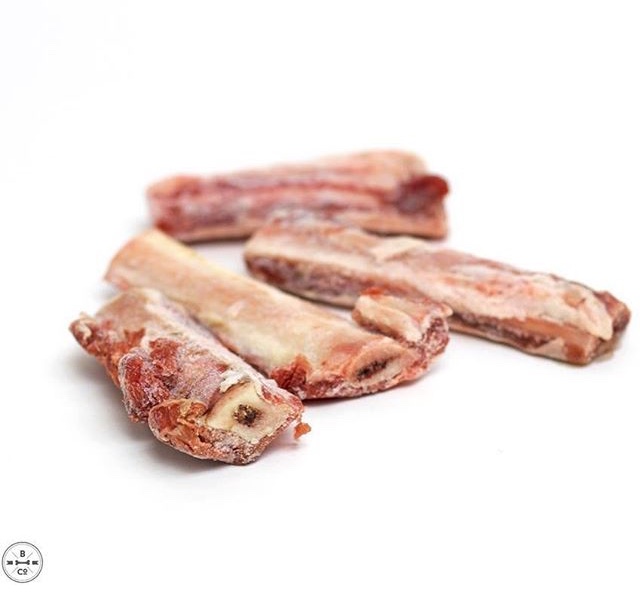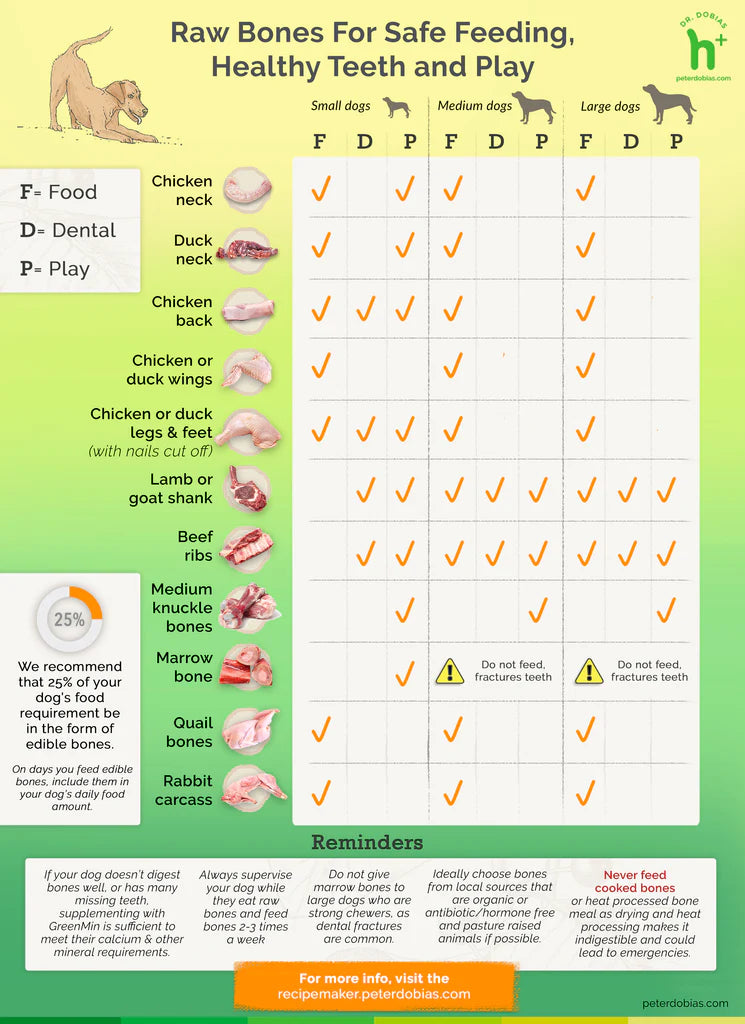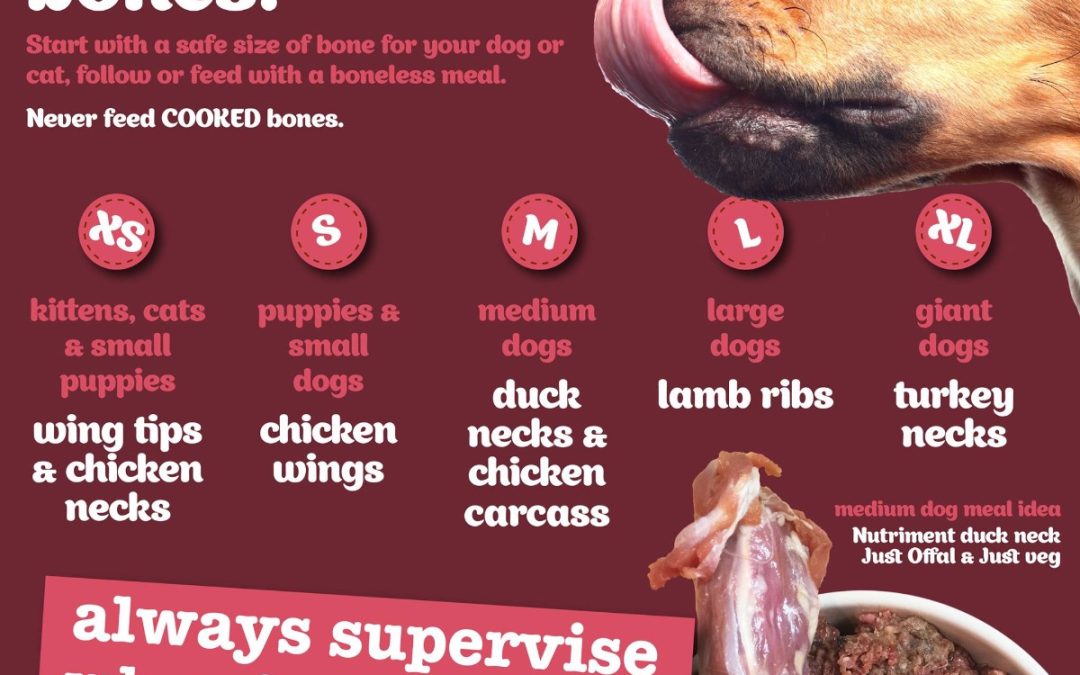The best raw beef bones for dogs are femur or knuckle bones. These bones are dense and long-lasting, providing great benefits for your dog’s dental health and mental stimulation.
When it comes to choosing the best raw beef bones for dogs, it’s important to consider the size and density of the bones. Femur bones and knuckle bones are ideal options as they are large and hard, making them suitable for aggressive chewers and providing long-lasting entertainment.
Additionally, these bones contain marrow, which adds nutritional value to your dog’s diet. However, it’s essential to supervise your dog while they chew on these bones to prevent any potential choking hazards or tooth fractures. In this guide, we will explore the benefits of raw beef bones for dogs and provide tips on how to safely incorporate them into your pet’s diet and routine.

Credit: www.thebonesandco.com
The Benefits Of Raw Beef Bones For Dogs
Raw beef bones are highly beneficial for dogs as they promote dental health by reducing plaque and tartar buildup. They also provide essential nutrients such as calcium and phosphorus which help maintain strong bones and teeth. Feeding raw beef bones can satisfy your dog’s natural chewing instinct, keeping them mentally and physically engaged.
Furthermore, the act of chewing on raw bones can also help in keeping your dog’s teeth and gums healthy, preventing periodontal diseases. It is essential to select appropriate raw beef bones for your dog, as some bones can pose a choking hazard or cause gastrointestinal blockages. Always supervise your dog while they are enjoying raw bones to ensure their safety.

Credit: peterdobias.com
Choosing The Right Type Of Raw Beef Bones
When choosing raw beef bones for dogs, it’s important to look for large, weight-bearing bones like femurs or knuckles. These bones are less likely to splinter and provide a more substantial chewing challenge for your pup, promoting dental health and mental stimulation.
Weight-bearing Bones
Weight-bearing bones, such as femurs or shank bones, are great options for dogs. These bones are dense and provide a long-lasting chewing experience. They also offer important nutrients like calcium and phosphorus, which are essential for maintaining healthy bones and teeth.
Soft Edible Bones
Soft edible bones, like rib bones or oxtails, are another excellent choice for dogs. These bones are more pliable and easily chewed, making them ideal for dogs with weaker jaws or dental issues. Additionally, soft edible bones offer nutritional benefits and can help clean your dog’s teeth and gums.
Please note that when feeding raw beef bones to your dog, always supervise their chewing to prevent any potential choking hazards or teeth fractures. It’s important to consult with your veterinarian and ensure that the bones you choose are appropriate for your dog’s size, age, and chewing abilities.
Precautions When Giving Raw Beef Bones To Dogs
When giving raw beef bones to your dog, it’s important to take precautions to ensure their safety. Supervision is key, as you should always be present when your dog is chewing on a bone. This allows you to monitor their behavior and intervene if necessary.
Avoid giving your dog small bones, as they can easily splinter and pose a choking hazard. Instead, opt for larger bones that are more durable and less likely to break apart.
Another precaution to keep in mind is to avoid giving cooked bones to your dog. Cooking bones can cause them to become brittle, increasing the risk of splintering. Stick to raw beef bones, as they are softer and less likely to cause harm.
Introducing Raw Beef Bones To Your Dog’s Diet
Raw beef bones can be a nutritious addition to your dog’s diet. When introducing these bones, it is important to start slowly to prevent any digestive upset. Begin by offering small, raw bones and gradually increase the size as your dog becomes more comfortable. It is crucial to monitor your dog for any signs of digestive issues, such as loose stools or vomiting.
If you notice any of these symptoms, it may be necessary to adjust the size or type of bone you are offering. While raw beef bones can provide beneficial nutrients and dental benefits for your dog, it is essential to always supervise your dog while they are chewing on bones to prevent any potential choking hazards. By following these guidelines, you can safely incorporate raw beef bones into your dog’s diet.
Nutritional Benefits Of Raw Beef Bones
Raw beef bones are an excellent source of calcium for dogs.
This essential nutrient contributes to strong bones and teeth.
It also promotes good joint health and overall bone strength.
Ensuring Safety When Feeding Raw Beef Bones
When choosing raw beef bones for dogs, opt for larger, weight-bearing bones. Ensure they are raw and not cooked.
Store bones in the freezer to prevent spoilage and bacteria growth. Thaw in the refrigerator before serving.
Clean bones with warm, soapy water after each use to remove bacteria and avoid contamination. Disinfect surfaces touched by bones.
Dispose of bones properly by wrapping them in a plastic bag before discarding them in the trash to prevent pets from accessing them.
Potential Risks Of Raw Beef Bones For Dogs
Raw beef bones can provide dental benefits for dogs, but it’s crucial to consider the potential risks. Choking hazards are a significant concern, especially for dogs who gulp down large pieces. Moreover, there is a risk of internal injury from bone splinters. It’s essential to supervise your dog closely when offering raw beef bones and consider safer alternatives such as specially designed chew toys.
Credit: omaspride.com
Frequently Asked Questions
Which Raw Beef Bones Are Safe For Dogs?
Safe raw beef bones for dogs include knuckle bones, marrow bones, and neck bones. Avoid small bones that can splinter.
Are Beef Bones From The Butcher Good For Dogs?
Beef bones from the butcher are beneficial for dogs as they contain nutrients and help promote dental health.
What Are The Safest Bones For Dogs?
The safest bones for dogs are raw and uncooked bones such as beef knuckle bones or raw chicken necks as they are less likely to splinter. Always supervise your dog while they chew bones and discard them if they become too small or sharp to avoid any choking hazards or injury.
Do Vets Recommend Raw Bones?
Yes, vets recommend raw bones for dogs as they help promote dental health and provide essential nutrients. It’s important to supervise your pet while they enjoy bones to prevent choking or ingesting sharp pieces. Always consult your vet before introducing raw bones to your pet’s diet.
Conclusion
To sum up, choosing the right raw beef bones for your dog is crucial for their health. Always prioritize safety and nutritional value when selecting bones for your furry friend. Remember to supervise your dog while they chew and consider consulting with a veterinarian for advice.
Keep your dog happy and healthy with the best raw beef bones.

Hi, I’m Olivia Davis. I am a certified nutritionist with a love for dogs that knows no bounds. At Dog Advisor Pro, I provide extensive insight into dog nutrition. A healthy diet is fundamental to a dog’s well-being and aims to empower dog owners with the knowledge they need to make informed choices about their furry friend’s diet. My goal is to make the field of dog nutrition easy and enjoyable for every pet parent.


